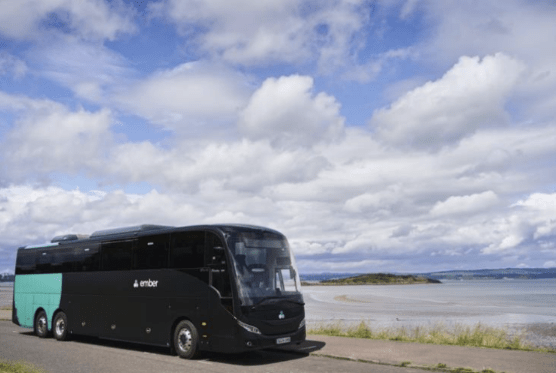A new report has underscored the need to adapt transport networks to withstand escalating climate risks and shows how this investment will yield significant economic returns.
Titled Transport resilience in a changing climate – The case for investment, the report outlines how targeted, forward-thinking investment can safeguard infrastructure, reduce long-term costs, and deliver more reliable, equitable transport systems in the face of climate change.
The product of a collaboration between London Transport Museum, global engineering firm Arup, international law firm Gowling WLG, and Hitachi Rail, the report has been published as part of the Museum’s thought leadership programme, Interchange.
It offers practical strategies to help the sector adapt to climate risks, using examples from the UK and around the world. These include innovations like sustainable drainage systems and tools such as NatureInsight, which uses data to design effective nature-based solutions.
In 2024, Storm Bert caused up to £350 million in insured losses, disrupted trains for 90,000 passengers at London Paddington, and left 350,000 homes without power. Subsequent repairs to rail lines and roads took weeks, showing how vulnerable the system is.
The report tackles the core barriers holding back progress: disconnected goals and fragmented decision-making; a lack of shared tools and data; short-term planning cycles and outdated assumptions; gaps in funding models; and risk frameworks.
To address these, the report set outs 5 key actions to be taken:
- Establish common goals: develop specific, measurable, achievable, relevant, and time-bound (SMART) goals
- Implement resource and finance effectively: expand green bonds and public-private partnerships to address funding gaps
- Inform decisions through data and innovation: use AI and tools like Arup and Scalgo’s NatureInsight® to prioritise nature-based solutions, such as sustainable drainage systems. Ensure this data is democratised and accessible across different organisations
- Build cross-sector collaboration: foster cross-sector partnerships, learning from initiatives like London’s Marylebone Flyover Rain Gardens
- Adopt a resilience mindset: highlight economic and social benefits, such as job creation, as well as environmental necessity
It added that investing in resilience offers far-reaching benefits to the economy, socially and environmentally, and urged the government, businesses and local authorities to work together on solutions and funding.
Elizabeth McKay, Director and CEO, London Transport Museum said:
“From buckled rails to flooded tunnels, climate change is rewriting the rules for transport. This report isn’t just a warning; it’s a roadmap for reinvention. By learning from case studies, we see collaboration is our greatest asset, allowing us to build systems that don’t just survive but thrive in a world threatened by climate change.’
John Fagan, Director, Arup said:
‘Climate change is reshaping how our transport systems must operate. This collaborative report highlights the need to embed resilience into the way we plan, design, and invest. Harnessing data and nature-based solutions can help futureproof infrastructure and address growing climate risks. Making resilience a shared priority across sectors is essential to building transport networks that are reliable, adaptable, and ready for the future.’
Kate Cunningham, Partner, Gowling WLG said:
“This report is a call to action for policymakers, industry and communities to think and act proactively to ensure our transport networks are resilient in an uncertain future.
“It is immensely rewarding to be involved in the discussions and production of the report which highlights that positive changes can be achieved with collaboration, shared data and a future thinking mindset.’
Mark Garrity, Strategy Director UK, Hitachi Rail said:
“Delivering resilient transport systems is essential to ensuring sustainable, inclusive growth across the UK.
“Climate resilience must now become a core part of how we plan, design and deliver transport systems, supported by the long-term funding certainty and stable planning frameworks needed to make that possible.
“The debate must continue to evolve, not only in adapting to climate impacts, but in shaping smarter, more sustainable networks for the future. Reports like this help shed light on the complex challenges facing the sector and the urgency of working together to address them.’
Image: Luca Marino / copyright Transport for London.












